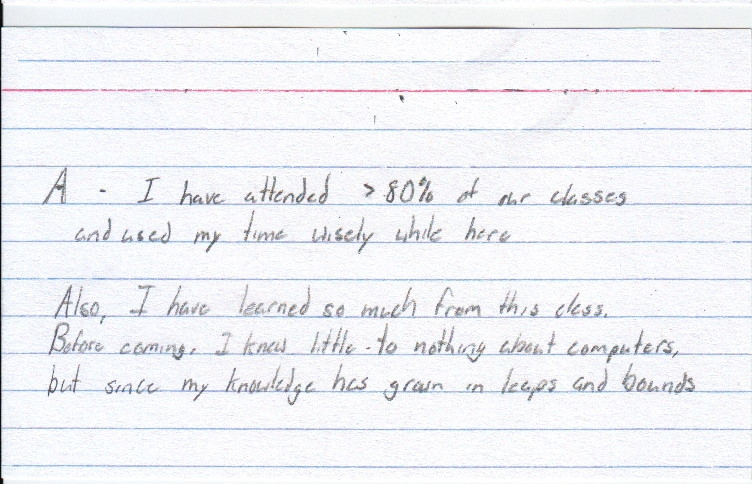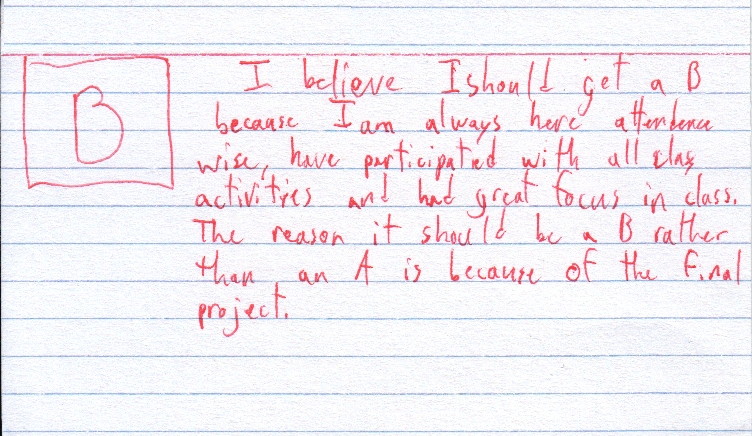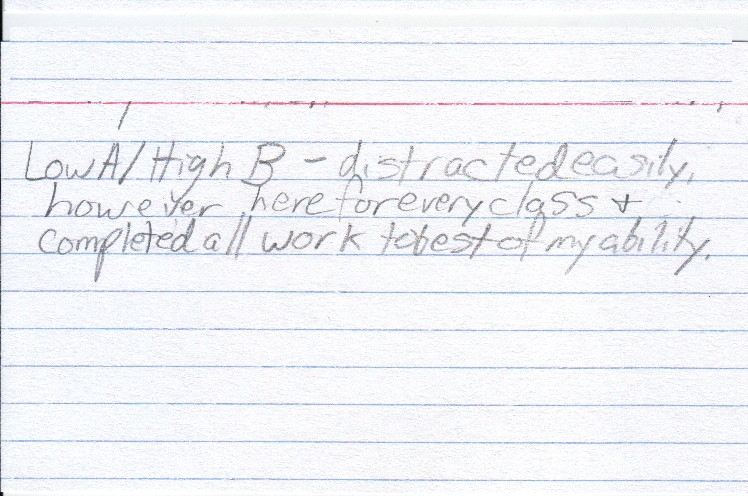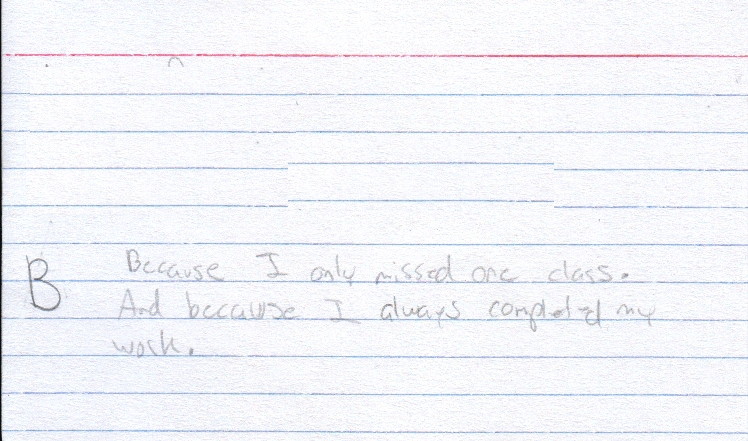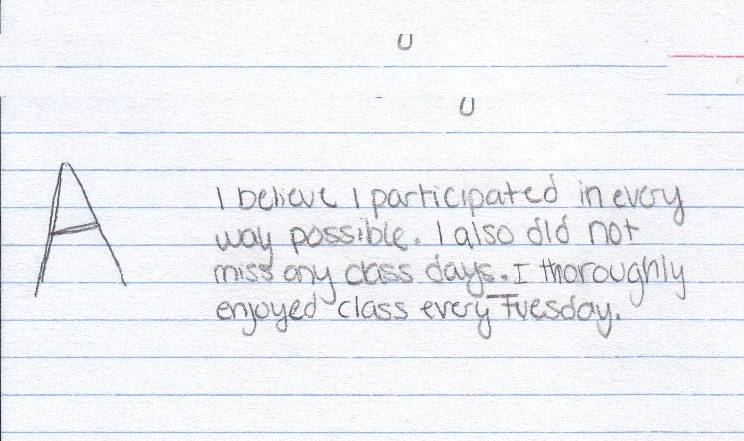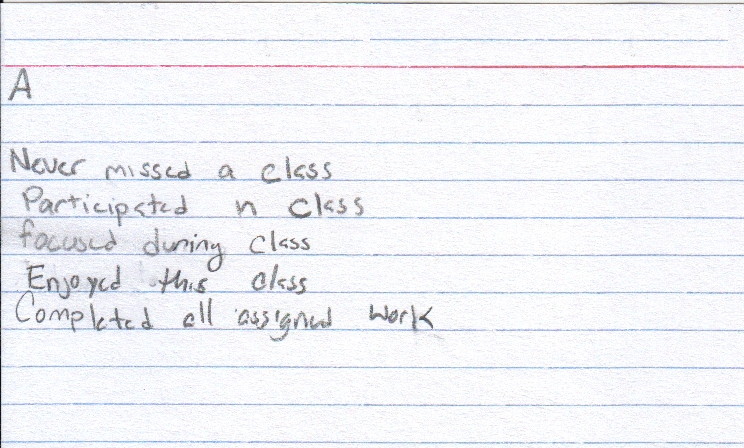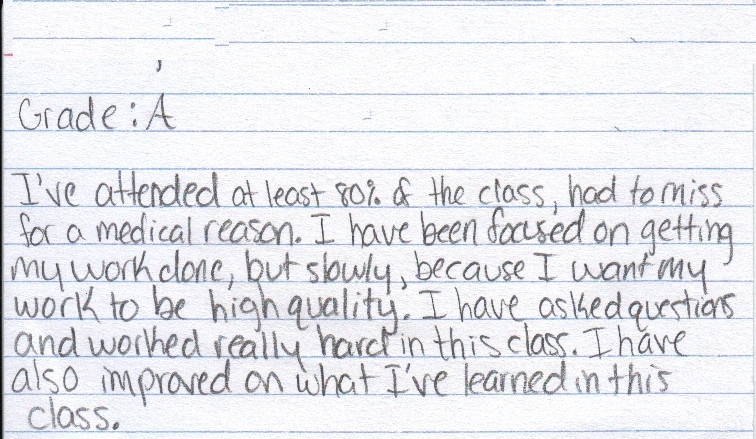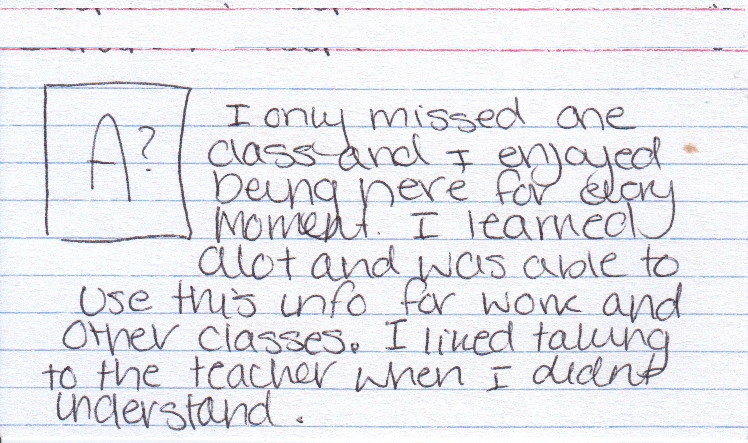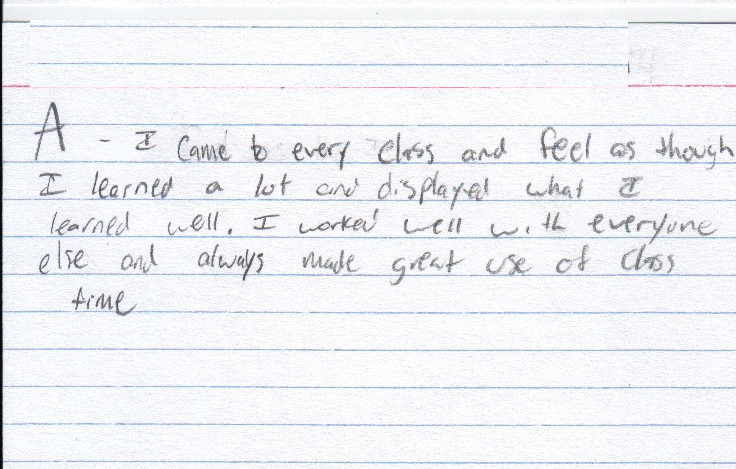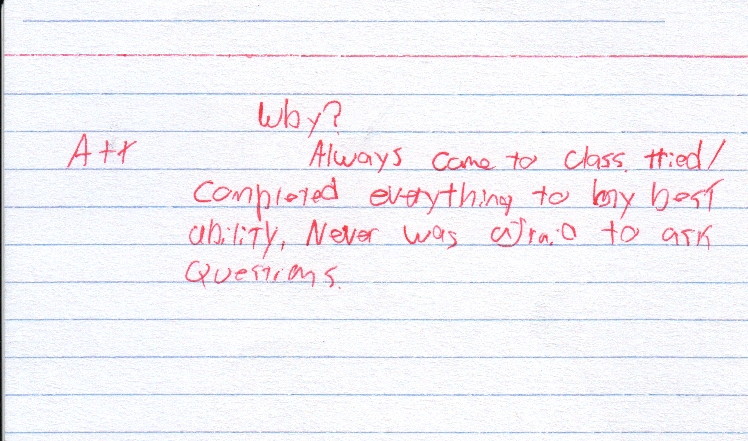Student-directed, Free-of-points grading system
CCAC Submitted Grade Open Data "Portal"
If a system's inner workings cannot be known, the system cannot be effectively scrutinized. In the spirit of open development of a non-point-based grading system, this section links term-by-term grade proposal cards and a clonable spreadsheet containing an anonymized listing of all mid-term and final grades submitted to the Community College of Allegheny County by Eric Darsow starting in the Fall of 2018.
Spreadsheet notes
This google drive sheet contains anonymous listings of grades proposed and grades submitted for courses taught by Eric Darsow at CCAC. This document currently contains Fall 2018 mid-term grades only. NOTE: The ID numbers attached to each grade were created using an undisclosed cypher to maintain student confidentiality but also facilitate data integrity verification (meaning Eric can backwards link the ID in the spreadsheet to individual students if needed).
CCAC Grading Guidelines
Introductory video on technology rediscovery related course letter grading
Grading policies apply to both online and in-person sections.
This course aligns to the grading policy of the Community College of Allegheny County. The following screen shot was extracted from the CCAC 2017-2018 faculty handbook:

Policy interpretation
All course content for a technology rediscovery course is considered philosophically optional. My operating fairness principle is that course credit should be awarded to students who put "good faith" effort in the course in whatever way makes the most sense for their lives and goals. In the institutional context of the Community College of Allegheny county, I consider it "unfair" to award credit to students who do not do put forth effort to learning meaningful things in a course.
I do not appraise any work as "late" according to dates specified on any academic calendar. When you do learning matters much less to me than you finding interesting and meaningful skills to develop. To this end, I will consider effort-fully undertaken work in my final grade determination up to and including the very last moment before I am required by the Community College of Allegheny County to electronically submit letter grades.
Teachers and students alike should maintain evidence of our efforts invested in a course. We should both be willing to submit that evidence to the scrutiny of an objective third party reviewer of the grading process, such as a college appeals council.
Grading process in brief
For each student, I do the following: I review what you propose as a grade. If your proposal aligns to how I translate my understanding of your progress in the course into a letter, then we are in agreement concerning your grade proposal: I will submit our agreed-upon grade.
If we are in disagreement about your proposed grade, I will ask to have a conversation about our perceptions of your effort in the course and we can try to arrive at a shared understanding. If we cannot, I will submit a grade according to the principles of this policy. All grade determinations by an instructor can be appealed to the college deans. You are encouraged to appeal any grade you consider unfair and prepare to submit evidence of your argument.
I make a regular effort to clearly state the grading process due dates. If I have not received a grade proposal from you by the day before grades are due or we have not been in explicit contact about your grade, I will check our shared work folders and my email inbox for evidence of effort, and then make a letter grade determination based on the polices expressed in this document.
Digested Policy
The following image conveys an stylized interpretation of the key words attached to letter grade definitions proivded in the CCAC policy above (i.e. "average"...). The card below serves as a guide for your instructor in determining letter grades for this course. Complete grading policies for each course are detailed in their respective syllabus document. A sample CIT100 syllabus.

Make a grade proposal:
Think carefully about what makes a good grading system "fair." Take a few mins to browse some proposals past students have made. Then make your own! And PleAsE don't forget to put your name on it:)
Sample self-grading 3x5 card"
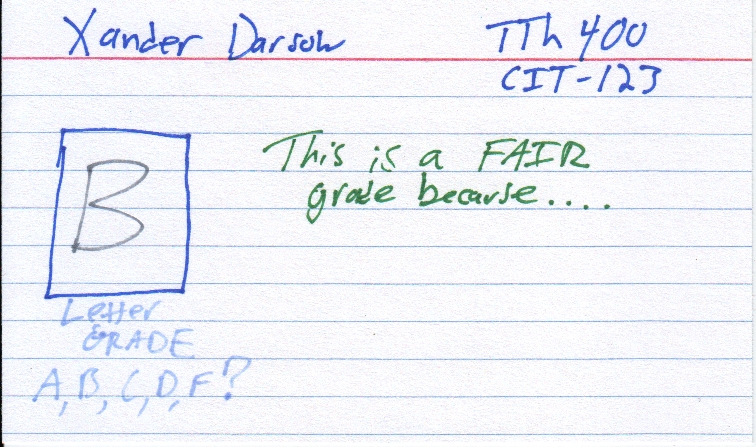
Anonymized Student-submitted grade cards from various classes


